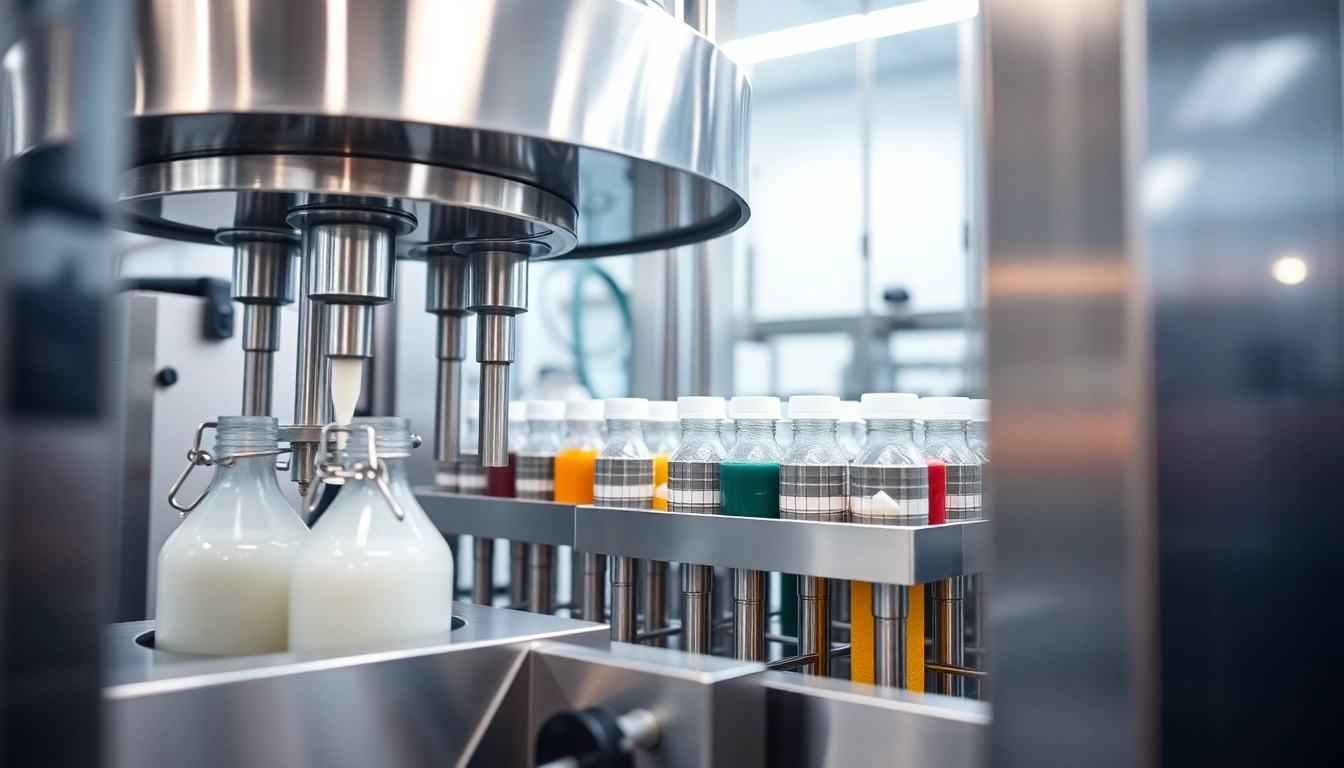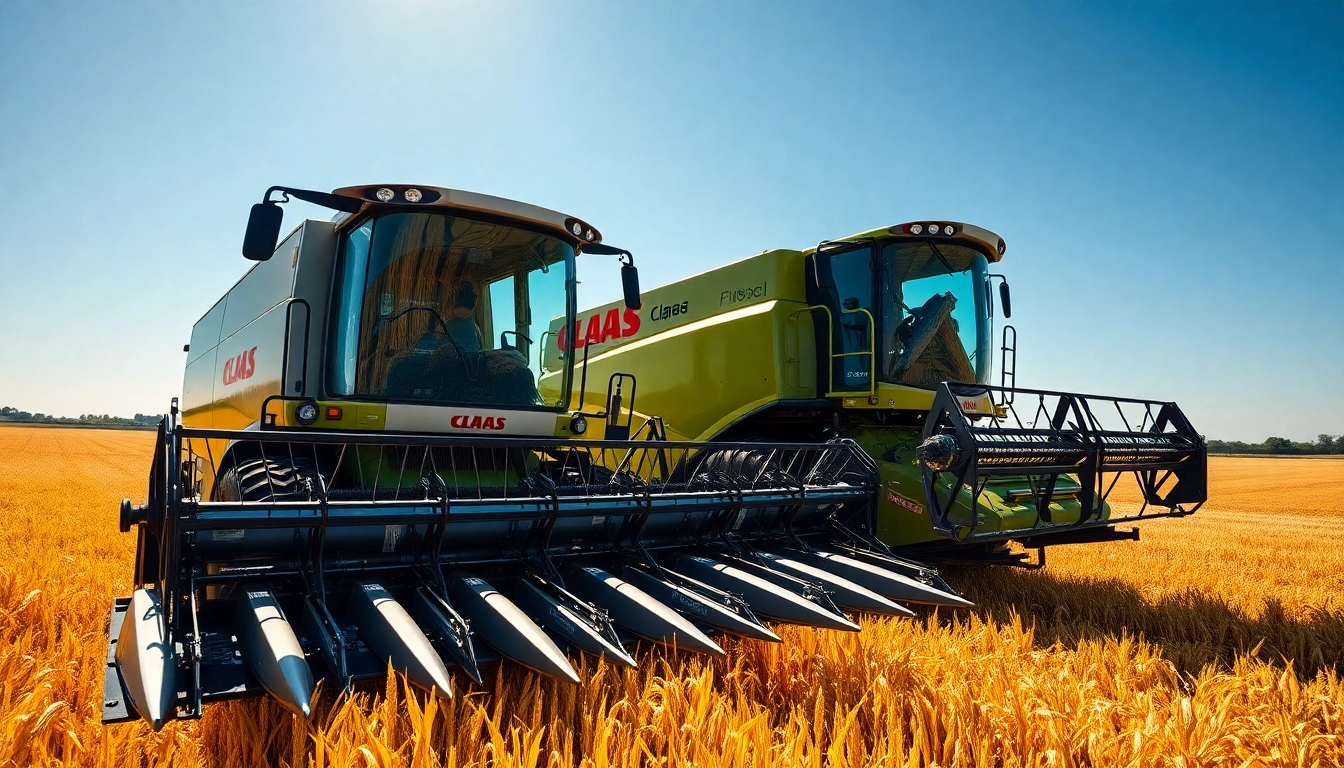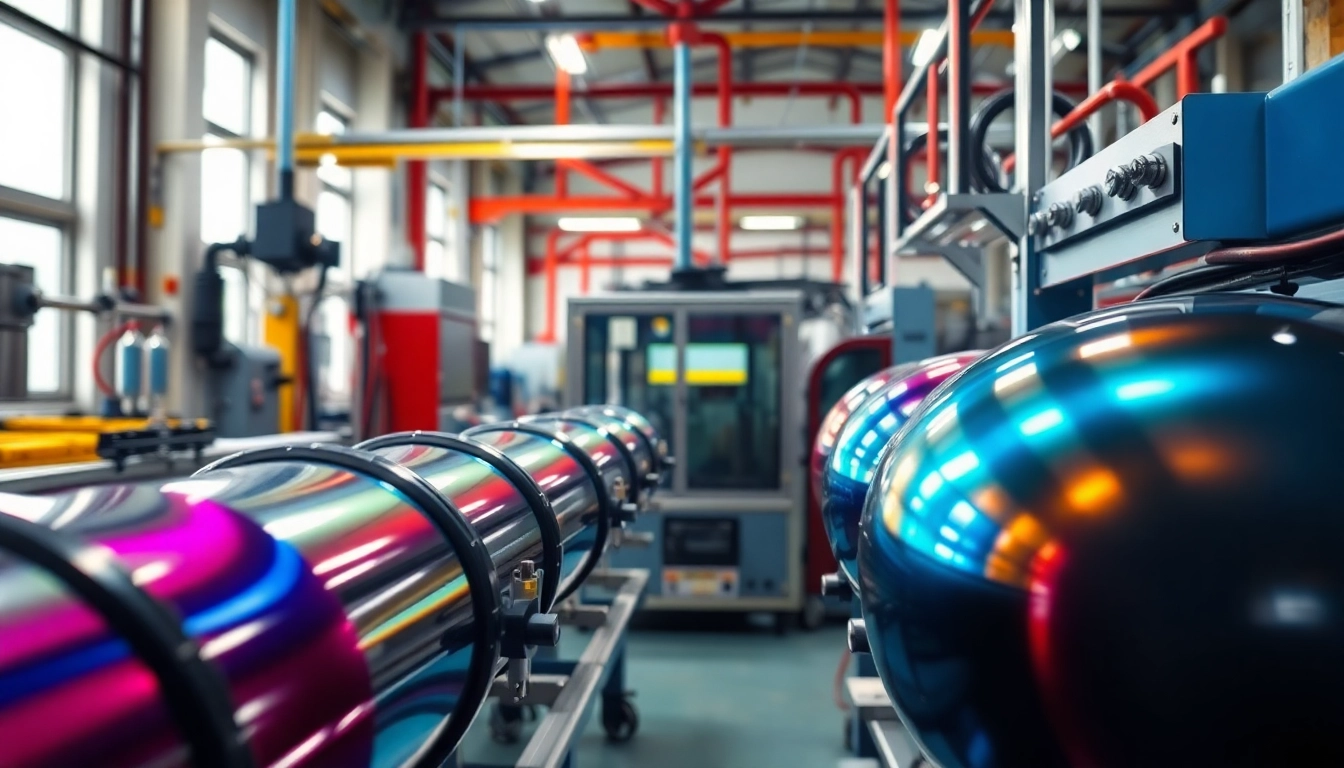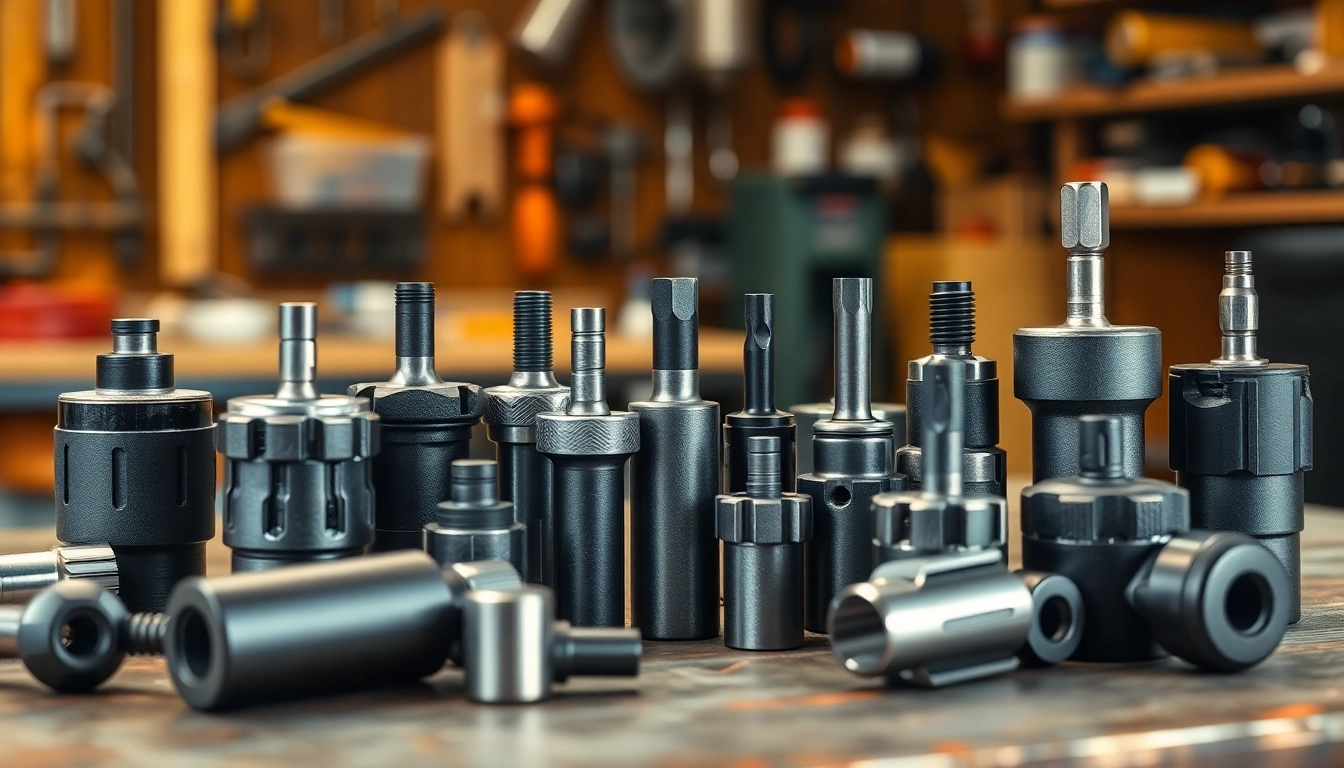Understanding Filling Machines
Filling machines are essential pieces of equipment used across various industries for efficiently and accurately dispensing products into containers. Whether in the food, beverage, pharmaceutical, or cosmetic industries, filling machines play a crucial role in the packaging process. As a leading Filling Machine Supplier, it’s vital to understand the functionalities, types, and applications of these machines to choose the right one for your business needs.
What is a Filling Machine?
A filling machine is designed to dispense a precise amount of product into containers such as bottles, jars, or tubes. These machines can handle various types of materials, including liquids, powders, granules, and solids, depending on the design and application. They are crucial in maintaining product quality, ensuring consistency, and enhancing overall production efficiency. Modern filling machines are available in several configurations, including manual, semi-automatic, and fully automatic systems, which cater to different production sizes and operational needs.
Types of Filling Machines
Filling machines come in several types, each catering to specific product requirements and production levels. The main types include:
- Gravity Filling Machines: Utilizing gravity to fill containers, these machines are best suited for low-viscosity liquids like water and wine.
- Piston Filling Machines: These machines use a piston to create a vacuum that fills the container with a precise amount, making them ideal for viscous products such as sauces and creams.
- Vacuum Filling Machines: Operating on vacuum principles, these are suitable for products sensitive to aeration, like oils and some food items.
- Pump Filling Machines: These machines utilize a pump mechanism to dispense products and handle a variety of viscosities, making them versatile for many industries.
- Overflow Filling Machines: Designed for filling liquids to a specific level, these machines are commonly used in the beverage industry.
- Auger Filling Machines: Best suited for powder products, auger fillers use a rotating screw to dispense precise amounts of powder or granules into containers.
Applications in Various Industries
Filling machines find application in diverse industries, showcasing their versatility and importance in the manufacturing process. Key industries include:
- Food and Beverage: Filling machines are used for bottling sauces, juices, carbonated drinks, and other liquid food products.
- Pharmaceutical: These machines play a vital role in the accurate filling of medicines, syrups, and powders, ensuring compliance with stringent regulations.
- Cosmetics: Commonly used for filling lotions, creams, and other beauty products into containers.
- Chemicals: Filling machines are used for packaging hazardous materials safely and efficiently.
Choosing the Right Filling Machine
Choosing the right filling machine entails careful consideration of several factors related to operational needs, product type, and budget constraints. As a business looking to purchase a filling machine, understanding these factors can help streamline the selection process.
Factors to Consider
When assessing different filling machines, consider the following:
- Product Type: Different machines cater to various product consistencies. It’s essential to select a machine compatible with your specific product characteristics.
- Production Volume: Determine the required filling speed and production volume, as this will dictate whether a manual, semi-automatic, or fully automatic machine is necessary.
- Container Size and Shape: Ensure the machine accommodates the size and shape of your containers. Some machines are adjustable for various formats, while others may require attachments.
- Budget: Consider the initial investment, operational costs, and potential ROI to ensure the chosen machine aligns with your financial objectives.
- Regulatory Compliance: In industries like pharmaceuticals and food, compliance with health and safety regulations is crucial. Select machines that meet industry standards.
Evaluating Supplier Options
When seeking a filling machine supplier, it’s important to evaluate various aspects to ensure a reliable partnership. Key points to consider include:
- Experience and Reputation: Choose suppliers with a proven track record in providing quality filling machines and excellent customer service.
- Technical Support: Ensure that the supplier offers robust technical support, including installation, training, and ongoing maintenance.
- Customization Options: Suppliers that offer customization based on specific business needs can provide better-suited solutions.
- Warranty and Service Agreements: Review warranty terms and service agreements to understand the support they offer in case of malfunctions.
Customization Possibilities
Many filling machines can be customized to better fit your production requirements. Considering factors such as:
- Modular Designs: These allow adjustments and upgrades to fit changing production demands.
- Specific Fill Volumes: Adjusting machines to handle diverse fill volumes is essential for manufacturers with varying product sizes.
- Material and Finish: Customizing the construction materials based on industry needs for stability or cleanliness.
Benefits of Advanced Filling Machines
Investing in advanced filling machines yields multiple benefits, significantly impacting efficiency, accuracy, and cost-effectiveness over time. Let’s explore these advantages in detail.
Enhanced Efficiency
Modern filling machines are designed for speed and precision, optimizing production lines. Their automation capabilities reduce bottlenecks and allow for high-volume manufacturing without compromising quality. This enhanced efficiency translates to quicker turnaround times and increased output, meeting market demands promptly.
Accuracy and Consistency
Filling machines ensure a consistent fill every time, which is critical for maintaining product quality. Machines like piston fillers can dispense exact amounts, minimizing waste and ensuring customer satisfaction. Consistency in filling levels also helps in meeting regulatory standards, especially in industries like pharmaceuticals.
Cost-Effectiveness Over Time
Though the initial investment in advanced filling machines may be significant, they prove to be cost-effective in the long run. Reduced manual labor, lower product waste, and ongoing operational efficiency contribute to substantial savings, making these machines a smart business decision.
Maintenance and Support
Maintenance and support are critical to the longevity and efficiency of filling machines. An effective maintenance strategy ensures optimal performance, reducing downtime and repair costs.
Routine Maintenance Procedures
Regular maintenance is essential for prolonging the life of your filling machines. Common routine procedures include:
- Daily Inspections: Check for leaks, blockages, or unusual noises.
- Weekly Cleaning: Remove product residues and contaminants to maintain hygiene and functionality.
- Scheduled Servicing: Follow your supplier’s recommendations for professional servicing and part replacements to prevent major issues.
Finding Quality Support
Your filling machine supplier should provide access to quality support. This encompasses not only technical assistance but also spare parts availability and training on machine operation and maintenance. A good relationship with your supplier enhances problem-solving efficiency.
Extending Equipment Lifecycle
Investing in the right maintenance strategies can extend the lifecycle of your filling machines. Proper care can delay the need for replacements and keep your production line running smoothly. Understanding the operational limits and capabilities of your machines is key to maximizing their lifespan.
Case Studies from Leading Industries
Examining real-world applications of filling machines provides invaluable insights into their benefits and efficiencies. Below are case studies from leading industries that illustrate varying implementations and results.
Food and Beverage Industry
A renowned juice manufacturer implemented high-speed piston filling machines to enhance its bottling process. This upgrade resulted in a 40% increase in production efficiency and reduced product spillage by 30%, significantly improving profit margins.
Pharmaceutical Applications
A pharmaceutical company adopted fully automated filling solutions for its syrup production line. The precision of these machines reduced filling errors to nearly zero, ensuring compliance with health regulations and enhancing customer trust and safety.
Cosmetic Product Filling
A cosmetics manufacturer shifted to an overflow filling machine for its lotion products. This transition improved the uniformity of product fills and helped establish the brand’s reputation for quality and reliability among consumers.
In conclusion, understanding the nuances of filling machines, from types to applications and maintenance, is essential for selecting the right machinery for your business. By choosing the right Filling Machine Supplier, you can enhance efficiency, accuracy, and overall productivity, driving your business towards greater success in the competitive marketplace.



